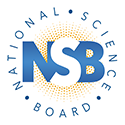
EDUCATION ON THE ROAD TO EXCELLENCE
A Series of Field Hearings
A Series of Field Hearings
Hearing Prospectus
Enriching Lives through Informal Education
Press Release, June 1, 1998
Hearing Agenda
May 29, 1998
SERIES PURPOSE -—
Through its Committee on Education and Human Resources, the National Science Board is undertaking a series of three field hearings beginning in the Spring of 1998. Field hearings will enable the Board to interact with NSF's performers and partners in various geographic regions. Board members are the principal audience, with a series of panels featuring invited participants to present information on funded projects for which NSF has provided support. Panels will also include representatives of various communities who have been the "consumers" or beneficiaries of these activities. Previous off-site events have attracted media attention and underscored the importance of the Board's role in shaping NSF programming and ongoing national policy debates. Each hearing will:
THE L.A. HEARING —
NSF invests $36 million annually in a variety of informal education activities—museums, print, broadcast, and community-based organizations—to increase appreciation and understanding of science and technology. Projects focus on preK-12 students, their parents, and other adults with the intent of promoting life-long learning, and with the vision that formal and informal learning reinforce and complement each other. Skills are built through classroom instruction, but "science literacy" grows out of experiences with, and cultural sensitivity to, the natural and human worlds. Therefore, out-of-school activities cultivate public interest and heighten awareness to the science and technology in our midst.
Among the questions to be addressed, structured through a series of brief multimedia panel presentations, are:
- How do communities envision the role of informal education within the larger educational and social infrastructure?
- What kinds of partnerships are forged by or with informal education institutions and what do they yield?
- How do NSF-supported informal learning events, exhibits, materials, and programs set a standard for emulation and institutionalization?
- What strategies for disseminating the lessons of informal learning activities need to be considered or better used?
- Through research and evaluation, how can we measure the impacts of informal experiences on individual learners, families, and communities?
- How does NSF play a catalytic role in mobilizing communities and promoting science and technology literacy?
The Los Angeles Museum of Natural History and the California Science Center are co-hosting the May 29 event. They are responsible for issuing invitations using their mailing lists and other resources (e.g. local media) to identify potential attendees. For additional information, you may contact Dr. Karen Goldstein by phone at (213) 763-3303 or via email at klgoldst@usc.edu. Additional information on the panel participants for May 29 will appear on the NSB Web site as soon as confirmations are complete.
PRINCIPALS AND STAFF SUPPORT —
A combination of NSB principals and NSF staff plan and execute the hearings. The chair of the NSB/EHR Committee is the hearing moderator. She is supported by a member of the Committee, who serves as NSB liaison, in coordination with a Local Arrangements Committee, NSB and NSF staff liaisons, and designated NSF program directors. OLPA provides national media support to publicize the series and ensure local media coverage of each event. The lineup for Los Angeles is:
| NSB/EHR Chair (former): | Dr. Shirley M. Malcom, Head, Directorate for Education and Human Resource Programs, American Association for the Advancement of Science, Washington, DC |
| NSB Liaison | Dr. James L. Powell, President and Director, Museum of Natural History, Los Angeles, CA |
| NSB Office Staff | Dr. Daryl Chubin, 703/306-2000, or dchubin@nsf.gov |
| NSF Program Staff | Dr. Barbara Butler |
| OLPA Staff | Ms. Mary Hanson Mr. K. Lee Herring |
OUTCOMES —
A summary of each hearing will be produced, distributed to all NSB/EHR Committee members, and discussed at the next scheduled Committee meeting. Decisions on the preparation of reports—and in what medium— will be included in Committee deliberations. Within a programmatic context, next steps will be suggested for NSB and staff consideration on communicating with external audiences on how NSF is fostering positive change in the teaching and learning of science and mathematics.